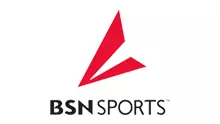
RUTGERS UNIVERSITY OFFICE OF ATHLETIC COMPLIANCE
Dear Rutgers Athletics Family:
Compliance with NCAA and Big Ten regulations is a shared responsibility and, as such, it is imperative that we all do our part to learn and abide by NCAA rules that impact Rutgers recruits, student-athletes, coaches, and boosters. The Rutgers Office of Athletic Compliance is committed to:
- Establish institutional control by monitoring and operating the athletics program in accordance with all applicable NCAA, conference, and institutional rules to maintain a culture of compliance.
- Provide proactive education and serve as a resource to help student-athletes, coaches, fans and all entities within the Rutgers community to comply with all applicable NCAA, conference, and institutional rules.
- Identify and report to the NCAA all instances in which compliance has not been achieved; and affirm that appropriate corrective actions are taken.
ASK BEFORE YOU ACT! Together we will continue to maintain an atmosphere of compliance so please contact the Office of Athletic Compliance with any questions about NCAA, Big Ten or Rutgers University rules.
Go RU!
ABOUT US
The Rutgers University Office of Athletic Compliance is responsible for ensuring that the University's athletic program - including student-athletes, coaches, support staff, administration - complies with all NCAA, Big Ten, and University rules regarding intercollegiate athletics. The Athletic Compliance staff educates and monitors its constituents, including alumni and boosters wherever possible; and, when necessary, reports infractions and oversees the imposition of remedial actions. The University and everyone involved in its athletic program are committed to maintaining a competitive and ethical intercollegiate sports program.
Rutgers University has assembled a premier Athletic Compliance staff fully equipped to best serve the Rutgers community. The staff brings with them diverse backgrounds and reputable experiences including, but not limited to:
- Experience in the private legal sector;
- Employment at the NCAA national office, conference offices, FCS and FBS peer institutions;
- Experience as former student-athletes; and
- Service on national NCAA and NAAC committees.
The Office of Athletic Compliance is structured using a sport-specific model, where each Compliance liaison is responsible for all compliance matters (except financial aid) related to their designated sports. Each liaison also serves as a representative to various athletically related departments, such as athletic training, academics and marketing. This structure allows the Athletic Compliance staff to be a more efficient and meaningful resource for administrators, staff, coaches and student-athletes by focusing on education, service, and relationship building with their assigned sport programs.
The Athletic Compliance staff truly views its role as one of customer service-responsible for helping the entire Scarlet Knight family navigate NCAA, Big Ten and institutional regulations. The Athletic Compliance staff will continue to work collectively with the Rutgers Community to enforce rules and report all violations regardless of intent, advantage gained, or effect on student-athletes' eligibility. The goal of reporting violations is to seek consistency and accountability; avoid similar issues in the future; and above all, send a strong message that Rutgers is unequivocally committed to rules compliance and competing with integrity.
FOR COACHES, FACULTY AND STAFF
This section aims to provide our coaches and athletic staff members with an overview of information that will assist them in understanding various NCAA rules and Rutgers institutional policies. This section will also serve as an educational tool to the general public to provide insight into regulations that affect our coaches. Please contact the Office of Athletic Compliance with any additional questions.
ACADEMIC INTEGRITY: COACH & STAFF CONTACT POLICY
The Division of Intercollegiate Athletics (DIA) is an integral part of the university and its mission at large. The DIA's mission, in part, is to embrace the pursuit of intellectual inquiry, educational discovery and the academic success of its student-athletes. In this regard, the DIA encourages involvement of its administrative and coaching staff members in the lives of the university's student-athletes. This is vital to the development of the student-athletes as productive members of society. Such involvement may include taking an interest in a student-athlete's academic pursuits at the university. In doing so staff members must respect the individual rights of the student and the integrity of the system. To assist its staff members, the DIA has implemented this policy regarding DIA staff members' involvement in certain aspects of student-athletes' academic pursuits.
Within the context of assisting student-athletes with their academic affairs, staff members must strictly abide by the DIA's policy. In areas that are not specifically addressed in the policy, staff members must make prudent judgments regarding their level of involvement in a student-athlete's academic life so as to avoid even the appearance of impropriety. Staff members must realize that even the most innocent contact with an academic official may be perceived as pressure to make a concession for a student-athlete (simply because the individual is an athlete). Any such perceived pressure compromises the integrity of the DIA and the university and further hinders the student-athlete's success at the university and in life.
In keeping with the DIA's general policy regarding involvement of the DIA's staff members in the academic pursuits of student-athletes, the following specific actions and similar actions are strictly prohibited:
- Coach-initiated contact of any type (e.g., oral, written, etc.) is not permitted between any member of the coaching staff and any Rutgers faculty member or associated instructional staff (teaching assistant, co-adjutant, part-time lecturer, etc.) with respect to any student-athlete. Coaching staff members may however, contact the Academic Support Staff for Student-Athletes Staff in this regard.
- Coach-initiated contact of any type is not permitted between any member of the coaching staff and any Rutgers staff member (e.g., assistant dean, assistant registrar, academic department secretary, etc.) as it relates to the academic standing of any student-athlete in a particular course or in general (e.g., grade in a course, dismissal status, etc.).
In addition:
- Only student-athletes shall turn in their assignments (e.g., term papers, take-home exams, homework, etc.) to their professors or instructors. Under no circumstances shall any staff member (including student managers, graduate assistants, volunteer coaches, etc.) hand in an assignment on behalf of a student-athlete.
- All contact with faculty members or instructional staff, if necessary, should be handled by the Academic Support staff. Please note that contact (telephone, e-mail, etc.) initiated by a professor, instructor, assistant dean, etc. to a coaching staff member or administrator is permitted. If this contact includes discussion of a student-athlete's performance in a course, performance on a particular assignment (including quizzes, tests and exams) or a student-athlete's grade in a course, such contact must be referred to the team's academic advisor immediately.
- All contact with the admissions staff regarding specific student-athletes and their admission status is strictly prohibited under this policy. Any contact with admissions about a specific student-athlete must be made by the Academic Support staff.
- This policy does not apply to contact with an instructor, professor, assistant dean, dean, admissions liaison, etc. that is general in nature (i.e., contact that is not specific to a particular student-athlete).
For additional Rutgers-specific regulations, please read the Rutgers University Academic Integrity Policy (PDF) and the Code of Student Conduct.
GAMBLING
NCAA rules prohibit participation in sports wagering activities and from providing information to individuals involved in or associated with any type of sports wagering activities concerning intercollegiate, amateur or professional athletics competition. For further information regarding sports wagering, please visit the following link: NCAA Sports Wagering Information
BROCHURE FOR FACULTY/STAFF
CLICK HERE (PDF) for a summary compliance brochure for Faculty/Staff regarding common terms, examples, and scenarios that may be encountered as a Rutgers University Faculty or Staff Member. Please note that this is not an all-encompassing brochure, and to contact a member of the Rutgers Office of Athletic Compliance with any questions that you may have.
FOR PROSPECTIVE STUDENT-ATHLETES
We are thrilled that you are considering becoming a Scarlet Knight! The Rutgers Athletics family is truly one of a kind. Regardless of where you are in your college-search process, our athletic department is willing to help advise you on the steps needed to make sure you are eligible to compete and represent Rutgers University. The most important step is to confirm that you are on track to meet NCAA initial eligibility or transfer eligibility requirements, which can be done through the NCAA eligibility center and our office. The NCAA Guide to College-Bound Student-Athletes is also a great resource for NCAA requirements.
Please explore the material on the Rutgers University website links below for more information relevant to Rutgers-specific departments:
NAME, IMAGE, and LIKENESS (NIL)
Rutgers Athletics announced its commitment to empowering student-athletes to maximize their Name, Image, and Likeness (NIL) through the R NIL platform. Positioned in the heart of the nation's No. 1 media market, R NIL offers unmatched visibility and access to the world's most influential brands and audiences.
For Rutgers student-athletes, this means the ability to build their personal brands on the biggest stage. It presents the chance to connect directly with leading companies and leverage the reach of a market that extends to millions of fans and consumers every day.
Click here for more information on R NIL and its impact on assisting student-athletes with building their brand, along with FAQs and additional R NIL opportunities.
FOR PARENTS OF STUDENT-ATHLETES
As the parent of a student-athlete, it is important that you understand NCAA rules and regulations that apply both to your child and yourself. Below are some guidelines that you should be aware of during your child's recruitment process and Rutgers career.
- Student-athletes have a pre-existing relationship with their parents. This means that parents that also serve as an athletic booster, or representative of Rutgers' athletics interests, are recognized by the university as a parent first and a booster second.
- Student-athletes and their parents may not agree to enter into an agreement with an agent (either verbally or in writing) for purposes of professional athletics representation while their son or daughter is a member of a Rutgers athletics team.
- Student-athletes, parents and relatives may not receive any extra benefits from a booster, an agent or anyone associated with an agent. Doing so could jeopardize the student-athlete's eligibility.
- Student-athletes and their parents may not receive any extra benefits due to the student-athlete's participation in athletics at Rutgers.
- Please explore this website to learn more about NCAA rules and regulations that affect you as the parent of a student-athlete.
Rest assured that your son or daughter is in good hands. If you have questions about your child's participation in intercollegiate athletics, please feel free to contact the Rutgers Office of Athletic Compliance.
BOOSTERS & DONORS
A BOOSTER is an individual, agency, entity or organization who is known by an institution to:
- Have made any type of financial or in-kind contribution to the athletics department or booster organization for the department;
- Have been a season ticket holder for any sport;
- Have been a member of any organization promoting Rutgers athletics (e.g., SKWC, Touchdown Club, Letterwinners Club);
- Have arranged for or provided benefits to enrolled student-athletes or their families or to prospective student-athletes or their families; or
- Have otherwise promoted Rutgers athletics program in any manner.
Please note, not all alumni are boosters, and not all boosters are alumni.
Once a Booster, always a Booster! Once you have been identified as a booster, you retain that status FOREVER! As a Rutgers booster, you are bound by NCAA, Big Ten and University rules, and, therefore, Rutgers is held responsible for your actions.
There are potential eligibility implications regarding your involvement/contact/communication with student-athletes and prospective student-athletes, so please use our office as a resource for any questions you may have concerning your status as a booster. Please feel free to contact the Rutgers Office of Athletic Compliance.
AGENTS
RESOURCES FOR AGENTS
This sections purpose is to provide a brief overview of NCAA rules and Rutgers institutional policies for Agents.
The program is designed to foster a collaborative relationship between our institution, student-athletes, families and agents. The policy above outlines the Athlete-Agent Program applicable to all student-athletes at Rutgers University (Rutgers) in order to comply with NCAA bylaw 12.3 (Use of Agents). The policy is meant to assist student-athletes in dealing with persons who seek to represent them as an “agent” in individual contract negotiations with professional sports teams.
The Rutgers Athletic Department is committed to provide its student-athletes with the information and resources needed to succeed after leaving the university. Rutgers is equally committed to protecting its student-athletes as well as its institutional interests from impermissible practices of advisors/agents seeking to represent student-athletes. To that end, no student-athlete should ever be influenced to unwillingly or unknowingly endanger his or her amateur status or NCAA eligibility. The Rutgers Agent Program enables sport agents to affirm the paramount importance of student-athlete welfare by working with student-athletes and their families in a rule-abiding and professional manner.
Agents Legislation
12.3.1.1 - Exception: Baseball-Prior to Full-Time Collegiate Enrollment
In baseball, prior to full-time collegiate enrollment, an individual who is drafted by a professional baseball team may be represented by an agent or attorney during contract negotiations. The individual may not receive benefits (other than representation) from the agent or attorney and must pay the going rate for the representation. If the individual does not sign a contract with the professional team, the agreement for representation with the agent or attorney must be terminated prior to full-time collegiate enrollment.
12.3.1.2 - Representation for Future Negotiations.
An individual shall be ineligible per Bylaw 12.3.1.2 if he or she enters into a verbal or written agreement with an agent for representation in future professional sports negotiations that are to take place after the individual has completed his or her eligibility in that sport.
12.3.1.3 - Benefits from Prospective Agents.
An individual shall be ineligible per Bylaw 12.3.1.3 if he or she (or his or her relatives or friends) accepts transportation or other benefits from:
- Any person who represents any individual in the marketing of his or her athletics ability. The receipt of such expenses constitutes compensation based on athletics skill and is an extra benefit not available to the student body in general; or
- An agent, even if the agent has indicated that he or she has no interest in representing the student-athlete in the marketing of his or her athletics ability or reputation and does not represent individuals in the student-athlete's sport.
In addition to the above Baseball exception, there are additional caveats in the sport of men's basketball.
The general rule of thumb is that if a student-athlete or anyone on behalf of the student-athlete accepts anything from an agent, the student-athlete's eligibility to participate in intercollegiate athletics may be impacted.
For more information or questions on the Rutgers Agent Program, please feel free to contact the Rutgers Office of Athletic Compliance.
Student-Athlete Information
Prior to competing on any outside team, or unattached, you must inform your coaches and the office of athletic compliance to determine permissibility, and you will have to complete an outside competition form. Please reach out to your coach & compliance liaison for the form.
Student-athletes competing unattached may not receive meals, transportation, hotel accommodations or other competition-related expenses from Rutgers during the academic year. Further, they may not compete in their Rutgers uniforms or score points for Rutgers.
CARA
Countable Athletically Related Activities (CARA) are any required activities with an athletics purpose that involves student-athletes and occurs at the direction of, or is supervised by, one or more Rutgers coaching staff, including strength and conditioning coaches.
Types of CARA
- Practice
- Competition
- Required weight training and conditioning
- Out-of-season individual skill-related instruction with coaching staff
- Review/discussion of game film
- Athletics meetings initiated or required by a coach
- Required participation in camps/clinics
Student-athletes' participation in CARA is subject to the following in-season and out-of-season limitations:
| During the Playing Season | Outside of the Playing Season* |
| Daily Limit: 4 Hours | Daily Limit: 4 Hours |
| Weekly Limit: 20 Hours | Weekly Limit: 8 Hours |
| At least one (1) day off per week | At least two (2) days off per week |
*There are additional exceptions for each sport in regards to what required activities may occur in each weekly limitation, so please speak with your compliance liaison should you have any questions.
Required Athletically Related Activities (RARA) are any required activities that occur at the direction of Rutgers athletic staff, but do not involve physical activities or coaching. RARA cannot occur during a day off (with exceptions), however Voluntary Athletically Related Activities may occur at any time.
Types of RARA
- Compliance meetings
- Drug/alcohol education meetings or Life-Skills meetings
- Community service, promotional activities, or media activities
- Recruiting host duties
Voluntary Activities: In order to be "voluntary," all of the following conditions must be met:
- Student-athletes are not required to report back to a coach any information related to the activity; staff members observing activities may not report back to a coach any information related to the activity;
- Activity must be initiated and requested solely by the student-athlete;
- Attendance and participation in the activity (or lack thereof) may not be recorded for the purpose of reporting to coaching staff or other student-athletes; and
- Student-athletes may not be subjected to penalties should they not participate, and no recognition or incentive may be awarded based on attendance or performance.
The following are additional terms that you will need to know as a student-athlete.
Competition Day: All competition and any associated athletically related activities on the day of competition shall count as three (3) hours regardless of the actual duration of these activities. CARA may not be conducted at any time (including during vacation periods) following competition, except between contests, rounds or events (e.g., double-headers in baseball).
Definition of a Week: Any seven (7) consecutive days as declared by the coaching staff. Once the "week" is defined, it shall not change for the duration of the season.
Final Exam Periods: When in-season, CARA limitations still apply during reading days and final-examination periods. When out-of-season, all athletically related activities are prohibited one (1) week prior to the beginning of final exams through the conclusion of each student-athletes' exam.
In-Season: The time between the team's first officially recognized practice session and the last practice session or competition. Seasons can be separated into two (2) distinct segments: championship and non-championship.
Out-of-Season: The remaining days during the academic year not included in the in-season period. In sports other than football, participation in up to two (2) hours of required skill instruction is permissible. In football, skill-instruction activities are limited to review of game film. Conditioning drills simulating offensive/defensive alignments are impermissible.
Safety Exception: A coach may be present during voluntary (i.e. noncountable) activities in a practice facility when students are using equipment in the sports of gymnastics, rowing, swimming/diving, track (field events only), and wrestling. Additionally, a strength coach may be present during voluntary weight training for safety monitoring purposes only.
Vacation Periods: CARA limitations do not apply during official institutional break periods when the student-athlete is in-season and classes are not in session (i.e., fall, winter, and/or spring break). This includes CARA limitations during preseason practice prior to the first day of classes. Student-athletes may not participate in any CARA during official institutional break periods when they are out-of-season.










